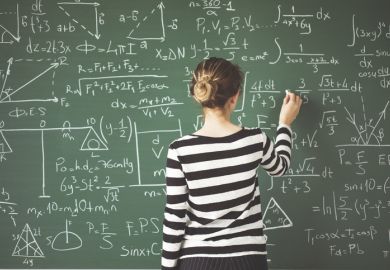Andrew Whitaker is a well-known theoretical physicist who has published widely in technical journals on foundational problems in quantum mechanics. Such thorough familiarity with the formal aspects of his topic would lead one to expect that the technical material in this book will be both correct and insightfully presented. Indeed, a reader will find such expectations fully justified. However, what makes this book such a pleasure to read is the author's direct and easy style and his having done his homework in reading and analysing the writings of the important modern scientific figures whose positions he discusses.
The central theme of Whitaker's story is the deep division of views on the interpretation of quantum mechanics - the "quantum dilemma" - that had its origin in famous exchanges between Albert Einstein and Niels Bohr (hence, the title of the book) and that still continues unabated, and in fact vigorously renewed, in the current foundations and philosophy of science literature. While the main intended audience here is the educated layperson (and there are no mathematical equations present), even professional physicists will find this a rewarding work.
The book is divided into roughly equal parts, the first covering classical physics, relativity and early quantum theory (up to, say, about 19) and the second the interpretative questions that involved many of the founders of quantum theory and went on to include David Bohm (from the early 1950s), John Bell (from the early 1960s) and several of today's leading theoretical physicists.
While Whitaker's recapitulation of the era prior to modern quantum mechanics is an admirably clear exposition, the real strength of the book lies in the second half. Here the author gives a closely reasoned account of the Bohr-Einstein debates and of the subsequent theoretical and experimental developments.
If I had to single out one chapter as the most fascinating and grippingly written, it would be chapter five on Bohr's views about the epistemological lessons of quantum mechanics. Whitaker has not only actually gone back and read Bohr's original essays and arguments, but has also skilfully related these to what most physicists took Bohr to mean (and that did not always correspond well to Bohr's own intent) and to recent scholarship by historians and philosophers of science. who have attempted to make sense of Bohr's often confusing, difficult-to-comprehend pronouncements.
The following chapter does something similar for Einstein's views on quantum mechanics. What is at the heart of these continuing debates is a struggle to decide what the status of quantum mechanics is: whether or not it provides an in-principle, complete account of all physical phenomena, or merely a statistical one that has yet to be complemented by further principles.
Whitaker argues, quite correctly, that the core principles at stake are locality (finite speed of propagation from cause to effect), the existence of an objective reality (physics being observer-independent) and determinism (in-principle predictability of the future state from the present one). While I would, myself, characterise these three desiderata somewhat differently and reorder those priorities for Einstein, Whitaker's central point strikes me as correct.
Although it must appear almost unbelievable to anyone not familiar with the historical development of quantum mechanics, a central aspect of these debates and of the fall-out from them is the degree to which prior philosophical commitments and the power of authority - for example, that of Bohr, Heisenberg, Pauli and von Neumann - were determining factors in the community of physicists (and, hence, by default, the larger intellectual community) accepting the "dogma" of an ineliminable and irreducible indeterminism in the basic laws of physics (quantum mechanics) and in the working of the physical universe at the most fundamental level.
Whitaker tells the remarkable story of how, after a quarter of a century of dogmatic intolerance on questions of the interpretation of quantum mechanics, Bohm in 1952 explicitly demonstrated that a completely deterministic version of quantum mechanics was empirically indistinguishable from the standard, or "Copenhagen", inherently indeterministic one. This, in turn, provided a major impetus for Bell's work on his now-famous theorem, the upshot of which is that any empirically adequate theory of an objective reality (ie, one in which there is a fact of the matter whether or not we look) must be nonlocal (as Bohm's theory is). Much of the importance of Whitaker's book is that it very effectively tells the increasingly less well-kept secret (a "heresy" in an earlier era) that Bohr and the "Copenhagen" interpretation did not conclusively (and perhaps not even arguably in any cogent sense) settle the central interpretative questions of quantum mechanics.
We are shown, as Bell cuttingly observed, that indeterminism is not forced on us by matters of logic and experiment, but by deliberate theoretical choice. That, however, runs counter to the usual representation of scientific practice and discourse.
Whitaker concludes with a true tour de force (chapter eight) in which he "struts his stuff" as a theorist and discusses most of the major recent developments in the foundations of quantum mechanics.
He discusses, for example, the many-worlds and the ensemble interpretations of quantum mechanics, decoherence and consistent histories, stochastic mechanics, spontaneous collapse models, neutron interferometry, macroscopic quantum superposition, and the quantum Zeno effect (the so-called watched-pot theorem).
What is remarkable about this chapter is that - still true to his commitment to no equations - the author takes us on a masterfully constructed journey through the conceptual frontiers of quantum mechanics in such a way that it is both comprehensible to the general reader and of genuine, informative interest to the expert.
By now it should be obvious that I most strongly recommend this book to anyone - layperson, student and professional alike - interested in the foundations of our candidate for the fundamental theory of physics (quantum mechanics).
James T. Cushing is professor of physics, University of Notre Dame, Indiana.
Einstein, Bohr and the Quantum Dilemma
Author - Andrew Whitaker
ISBN - 0 521 48220 8 and 48428 6
Publisher - Cambridge University Press
Price - £40.00 and £16.95
Pages - 349
Register to continue
Why register?
- Registration is free and only takes a moment
- Once registered, you can read 3 articles a month
- Sign up for our newsletter
Subscribe
Or subscribe for unlimited access to:
- Unlimited access to news, views, insights & reviews
- Digital editions
- Digital access to THE’s university and college rankings analysis
Already registered or a current subscriber?



